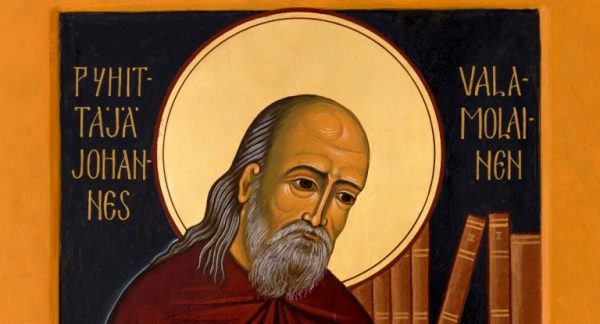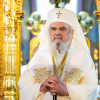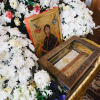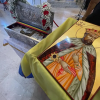The liturgical proclamation of this glorification was celebrated this year on June 1 at the Holy Transfiguration-New Valaam Monastery in Heinävesi by Metropolitan Leo of Helsinki and All Finland.
Now the relics of the new saint have been exhumed and will be available for the faithful to venerate, reports the site of the Finnish Orthodox Church.
Upon request of the Kuopio and Karelia Diocese of the Finnish Church, the Department of State Authorities in Eastern Finland issued a permit on October 4 for the opening of the grave of St. John of Valaam and the placing of his holy relics in a reliquary in the Church of the Transfiguration of the Lord at New Valaam Monastery.
According to Finnish law, permission for exhumations can only be granted for special reasons. The Department’s decision sets an important precedent, as this is the first time a permit was issued based on the fact of the canonization of a saint and the Orthodox tradition of venerating relics.
The diocesan appeal referred to the the Finnish law on the freedom of religion, noting that the veneration of relics corresponds to the free confession of faith. In response, the Department referred to St. John’s canonization, the fact that he belonged to the Orthodox Church, and the placing of his relics for public veneration as weighty reasons to grant the appeal.

With the blessing of Metropolitan Arseny of Kuopio and Karelia, St. John’s grave at New Valaam was opened on Friday, October 18, with the participation of the abbot and brethren of the monastery, a member of the Commission for the Canonization of Saints, a restorer at the Valaam workshops, and a representative of the health services.
“The saint’s remains were easily found where his gravestone was. A large silver cross from his monastic paraman and part of his monastic leather belt were also found,” said Abbot Sergei.
St. John’s relics were then washed with diluted white wine and rose water, according to Orthodox tradition. Once the relics dry, they will be clothed in schema vestments and placed in a reliquary.
They will then be transferred the monastery’s main church during a procession on Friday, November 8, followed by the All-Night Vigil. The Divine Liturgy will be served the next morning, after which the relics will be place in their designated spot in the church.
***
St. John’s biography:
John was born on February 14, 1873 in the Tver province of Russia into a peasant family. He graduated from the parish school of the village of Il’inskoe.
In 1889, he entered Valaam Monastery. After spending four years in the Skete of Saint Herman of Valaam, he was conscripted into the army for another four years. Released from military service, he temporarily returned home before returning, in 1901, to Valaam. John was given obedience for two years at the metochion of the Valaam Monastery in St. Petersburg. Later, he wrote that the city had a bad influence on him and that he, weak in spirit, could not accommodate the urban bustle.
In 1906, John became a novice at Valaam Monastery and, on May 22, 1910, he was tonsured a monk with the name of Hyacinth. After repeated petitions, Hyacinth returned to the monastery and lived initially in Prophet Elias Skete, then later in the Skete of Saint John the Baptist.
On October 19, 1921, he was appointed abbot of Saint Tryphon of Pechenga Monastery. Then on November 13, he was ordained a hierodeacon and on November 15 a hieromonk. At that time, the monastery was within the territory of the newly independent Finland. In 1932, Hyacinth returned to Valaam and, in 1933, he was tonsured in Great Schema with the name John and began to live in seclusion in the Skete of Saint John the Baptist. In 1938, he was elected the spiritual father of the monastery.
In 1940, Fr. John was evacuated with the other brethren to Finland during the Winter War between the Soviet Union and Finland. The elder reposed on June 5, 1958, in the New Valaam Monastery in Finland.
English article: OrthoChristian
Photography courtesy of New Valaam Monastery

















